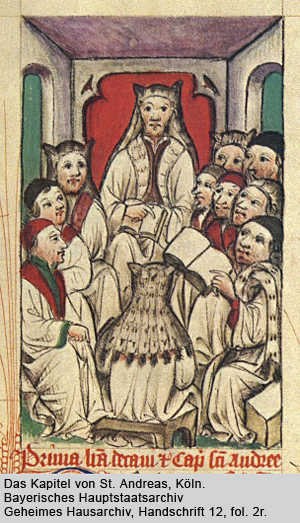History of the Project

In 1999, Peter Moraw (Justus-Liebig-Universität Gießen, Germany) and Rainer C. Schwinges (University of Bern, Switzerland) decided to explore the university educated scholars of the Holy Roman Empire concerning their personal history, as well as their lives, knowledge, social impact and specific culture they thus developed. The historical Commission at the Bavarian Academy of Sciences in Munich accepted the project and installed, under the name of Repertory Academic Germanicum (RAG), a distinct research department.
Work for RAG started 2001 in Bern and 2002 in Gießen. Funding was granted from 2001 until 2006 by the Swiss National Fund, the German Research Council and the Fritz-Thyssen-Foundation. In January 2007, the RAG was included in the Academies' program at the Union of German Academies of Sciences’ sponsoring program. December 2019 is envisaged to be the project’s preliminary end.
The RAG aims to cover all graduate scholars (theologians, jurists, physicians and Master of Arts), preferably with their complete vita, who were active in the territory of the Holy Roman Empire between 1250 and 1550, on a sufficiently broad reference basis. The goal is to connect history of the institutions with both social and cultural history of the academic attendees and the history of science in such a way that scholar’s history of life and impact in pre-modern society will be describable. The extensive data base of the RAG enables completely new and interdisciplinary perspectives in research. Qualitative and quantitative statements on the intellectual elite of the Holy Roman Empire overall will be possible, just as about their European networks and diverse institutional and territorial comparisons.
RAG database is open to the public and available to researchers at any time under www.rag-online.org.
